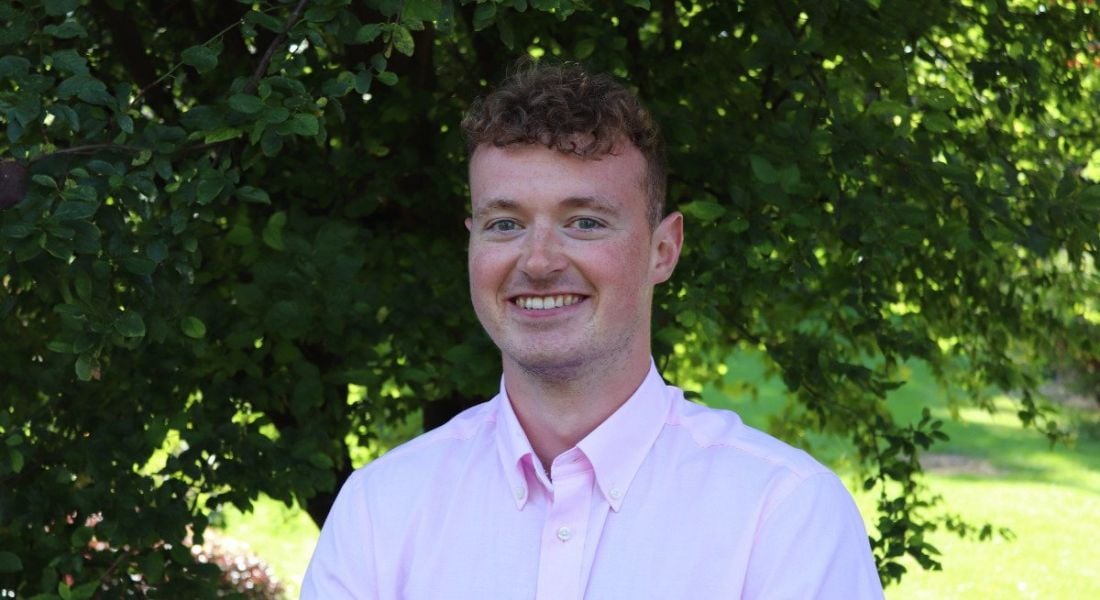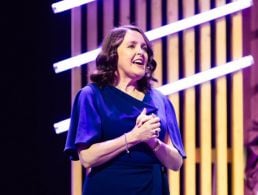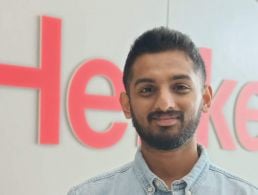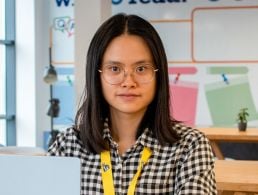Sam Bolger discusses what attracted him to Accenture’s graduate programme and the key skills he has learned.
As graduate season continues, there are plenty of companies looking for early-stage talent, which means graduates have plenty of options.
One of the best ways to find the right choice for you is to find out what other graduates’ experiences have been like. This year, we’ve already heard from Aon’s Jeevan Mysore Harish, PwC’s Colin Hehir and EY’s Cassandra Ezechukwu.
Sam Bolger is a UCD graduate, having first completed a bachelor’s degree in neuroscience and then a master’s in biotechnology and business.
He joined Accenture after completing his master’s in 2019, and now works as a business and technology integration analyst.
‘As much as I loved science, I didn’t want to be a scientist’
– SAM BOLGER
With this programme, are you now working in your desired industry?
When I was studying, I thoroughly enjoyed developing the people and relationship-focused skills that are required in business, as well as the innovation capabilities associated with technological roles. The Accenture graduate programme afforded me the chance to combine both, which is exactly what I was looking for.
Many of my colleagues and friends finished their studies feeling unclear as to where their end-goal industry lay, due to the dynamic rate of change across most modern industries, but this is precisely where I wanted to begin my career.
What drew you to Accenture when you were seeking work as a graduate?
I discovered early during my undergraduate studies that, as much as I loved science, I didn’t want to be a scientist. I always had a keen interest in technology and its application within the world of business.
When I began researching graduate opportunities during my master’s, the programme offered by Accenture was immediately my first preference as it fitted into the intersection of these fields. The programme was also of particular interest to me given the strength of Accenture’s life sciences practice and the rate of growth in this area.
Thankfully, I was offered a role with Accenture after the programme and the journey thus far has been very rewarding.
What expectations did you have before you began the programme?
I knew that Accenture was focused on using technology to drive change. So, I set my sights on joining the life sciences division and was looking forward to using the latest technology to bring new innovations to the pharmaceutical and life science sectors.
I was hoping that there would be large degrees of collaboration, both between graduates and with leadership. It was reassuring that from very early in the programme, the graduates were given exposure to senior management and leadership on a regular basis.
We were also encouraged to interact at any stage, be that with questions, ideas etc. As a graduate, I really felt like my voice was heard, and my ideas could make an impact.
What duties and responsibilities were you given initially?
My initial development was focused on implementing my ongoing training to solve client data problems as they arise and becoming familiar with agile methods of working.
Did the scope of your work change as the programme progressed?
I became more confident in my technical abilities and focused more on developing the soft skill requirements, as I’m in a client-facing role.
I’ve found it really useful to observe how my manager interacts with clients. In addition, I’ve become aware of the best ways to frame questions and handle change, as they can be critical to project outcome. Admittedly, I had overlooked these and assumed them as something that just happened on the job, but it is something I am focusing far more on as I develop.
The best technical ability in the world can be quickly undone by not having strong people skills.
Can you describe a typical day in your role?
Typically, there would be early meetings with clients, based anywhere from Europe to Asia. Discussing technical issues or concerns and addressing them, building the technical components of our software and fixing problems as I go lies at the heart of the day.
The project I am currently working on is relatively new and involves building a community within Accenture, working closely with colleagues in the US and sharing ideas. I really enjoy the collaborative aspect of this internal work and seeing the community continue to grow.
How do your responsibilities compare to more experienced employees’?
I am trusted with a lot of background technical work, in conjunction with client-facing roles.
Looking at my team, the role of more experienced employees (such as project lead, managers, etc) is to ensure that all collective work is completed in line with deadlines, whereas my role is to deliver on my particular part of the project.
Do you feel more prepared for working life after completing this programme?
Definitely, I feel much more prepared having completed the programme, and now that I’ve transitioned to a permanent role within the company.
Accenture places confidence and trust in us and our ability as graduates from the get-go. While the transition from graduate to working life seems scarily brief, I feel that we’re prepared for work and have the support base to do so.
Why should someone apply to the graduate programme at Accenture?
This graduate programme hires from a wide range of backgrounds; in my start group alone, we had joiners from business, engineering, science, IT etc. We were all similar in that problem-solving lay at the crux of our skillsets, albeit from differing viewpoints.
My advice would be to apply to the programme if you have a genuine interest in the work (as cliché as that may be) and if you want to use your skills and perspective to drive real change.




